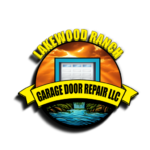
Noisy Garage Door? Here's What You Need to Know to Fix It
A noisy garage door can disrupt your peace and signal potential underlying issues. From the grating sound of worn rollers to the rattling of loose hardware, identifying the root cause and addressing it is vital. Ignoring the problem could lead to bigger, costlier repairs down the road—or worse, compromise the safety of your garage.
If your garage door is making loud, unpleasant noises, don’t worry! This noisy garage door fix guide will help you understand why it’s happening and how to fix it.
Common Causes of a Noisy Garage Door
Before you grab your toolbox, it’s essential to identify the source of the noise. Here are some typical culprits behind noisy garage doors:
Loose Hardware
Bolts, screws, or brackets that hold your garage door together can loosen over time. This can cause rattling or clanging sounds every time the door moves.
Lack of Lubrication
Garage doors have a lot of moving parts, like hinges, rollers, and tracks. If these aren’t properly lubricated, they can make grinding or squeaking sounds.
Worn Rollers
Over time, rollers—especially metal ones—can wear out, resulting in a noisy, bumpy operation.
Motor Issues
If your garage door opener’s motor is straining during operation, you might hear humming, grinding, or vibrating sounds.
Spring Problems
Garage door springs handle a lot of tension. When they wear out or rust, they can creak or even snap, which creates a loud bang.
Simple DIY Fixes
There’s good news—you might be able to fix some issues on your own with a little time and effort. Here’s how to address the common causes of garage door noise:
Tighten Loose Hardware
Inspect all bolts, screws, and brackets on your garage door. Use a socket wrench to carefully tighten anything that’s loose, but avoid over-tightening as that can strip the threads or damage the hardware.
Lubricate Moving Parts
Use a garage door lubricant (not WD-40) to address squeaky hinges, rollers, tracks, and other moving parts. A light application can make a significant difference. For best results, lubricate your garage door every six months.
Replace Worn Rollers
If your rollers are worn, cracked, or made of noisy metal, consider upgrading to nylon rollers. These are quieter and more durable. Be sure to follow a step-by-step online guide—or better yet, hire a professional—for safety during replacement.
When to Call a Professional
Although some fixes are DIY friendly, others require the expertise of a professional garage door technician. Here are situations where it’s best to call for help:
- Spring Replacement: Replacing garage door springs is risky and should always be handled by a trained expert. Springs are under high tension and can cause serious injuries if mishandled.
- Motor Repairs: If the motor is acting up or emitting strange sounds, professional repairs or replacements might be necessary.
- Unresolved Noises: If you’ve tried the above fixes and your garage door is still noisy, a pro can run a thorough inspection to pinpoint the issue.
Quiet Your Garage Door Today!
Maintaining your garage door is essential to keeping your home safe, quiet, and hassle-free. Fixing a noisy garage door can often be as simple as tightening hardware or lubricating parts. For more complex issues like spring replacement or motor problems, trust the professionals.
At Lakewood Ranch Garage Door Repair, we offer expert solutions for all your garage door needs. Whether it’s routine maintenance or major repairs, our skilled team is here to help. Contact us today and bring the peace and quiet back to your garage!
